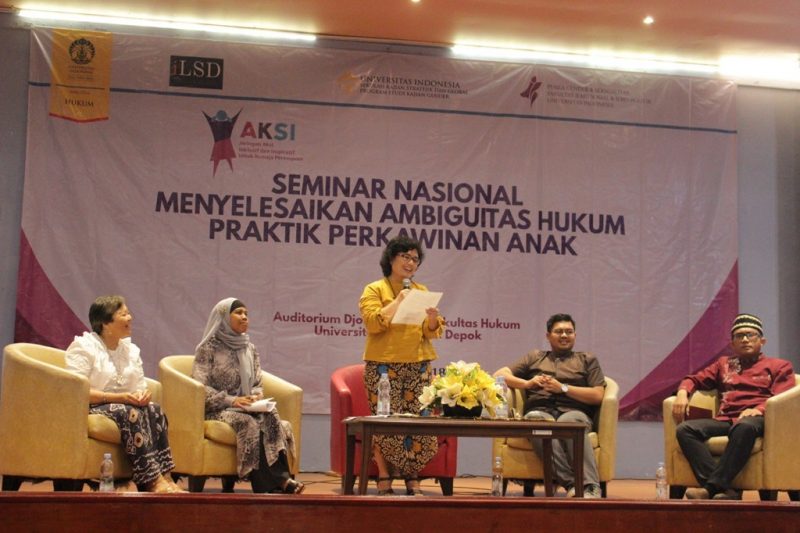National Seminar: Unraveling Legal Ambiguity on Child Marriage Practices
One in four Indonesian women married before reaching the age of 18 (BPS and UNICEF, 2016). At the international level, Indonesia is among the seven countries with the highest number of child marriage and is ranked the second highest number of child marriage cases in ASEAN (UNICEF, 2010).
The practice of child marriage can easily be found in almost all parts of Indonesia, especially in rural areas and areas with severe natural damage due to changes in land functions and ownership, the number of child marriage tends to be higher, such as Banten, West Java, East Java, Nusa West Southeast, and South Sulawesi. This occurs because people’s access to their natural resources, for example the land, becomes smaller and even inaccessible. They no longer have income from their own land and environment. Under these conditions, marrying off girls becomes a shortcut to releasing family responsibilities towards them. Because with the marriage, the parents transfer the responsibility of their children into the responsibility of their spouses.
The factors that directly cause child marriages are unwanted pregnancy, forced marriage, and dropping out of school due to taking over domestic work, or due to cost limitations. Child marriages also occur because parents want their children to be economically independent, when the child sexuality is considered harmful so that her/his sexuality needs to be controlled, or because they become the victims of sexual violence therefore the solution is to wed them.
On the other hand, efforts have been made to prevent child marriages. However, one of the obstacles that emerges in the effort to prevent child marriages is the stagnation of constitutional legal efforts to prevent legal marriage of children. This obstacle occurs at the legislative level. The existence of legal practices carried out outside the corridors of the law by using primordial practices shows the ambiguity of the state and citizens in using the law. As a legal state, this practice shows the efforts to weaken the existence of the state.
Based on these problems, the Community Law and Development Studies Institute Faculty of Law Universitas Indonesia together with the Indonesian Young Women AKSI Network, the UI Women and Gender Study Center and the UI Gender and Sexuality Center held a National Seminar on Unraveling Legal Ambiguity on Practice Child Marriage on Monday, August 13, 2018 at Djokosoetono Auditorium FHUI, UI Depok Campus.
This national seminar presented Lies Marcoes (Rumah Kita Bersama) as the Keynote Speaker, and four speakers, namely Achmad Hilmi, Lc. MA (Action Network and Program & Advocacy Manager of Rumah KitaB Foundation), Dr. Nur Rofiah (Network of Indonesian Women’s Ulama Congress, KUPI)., Dr. Khaerul Umam Noer (Gender Study Program – School of Strategic & Global UI Studies), and Prof. Dr. Dra. Sulistyowati Irianto (Chairperson of the Community Law and Development Studies Institute FHUI and Professor of UI Legal Anthropology).
The purpose of this seminar is to disseminate the legal ambiguity of child marriage practices, discuss the ideological arguments of religion in child marriage practices, and provide alternative recommendations on how to restore the state’s concrete position and role and religious / cultural figures, practitioners and activists and concrete responses to stop child marriage in Indonesia.

